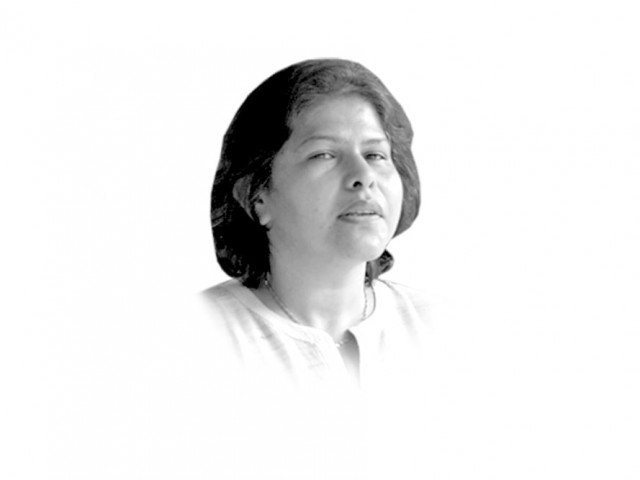Coercion for political realism
In the age of media, dissent becomes an eyesore and needs to be curbed in order to avoid embarrassing certain people.

The writer is an independent social scientist and author of Military Inc.
Notwithstanding the achievement of having won a war, the government in Colombo must not be allowed to expand a sociopolitical system that had 30 years ago, divided the society into two: Sinhala south and Tamil north. Historically, the Sinhala leadership has not demonstrated tolerance, resulting in repeated mass carnages. As if the killing of 60,000 Sinhala youth in the south of the country during the 1980s for their involvement in socialism was not enough, the Sinhala leadership made policies that started ethnic strife in the island-state. In fact, what essentially was a class conflict was turned into an ethnic problem with Colombo introducing policies such as Sinhala, as the only national language, to replace both Tamil and English.
Having won the war against the Tamil Tigers and managing to kill the LTTE leader, Velupillai Prabhakaran, in 2009, it was expected of the government that it would reach out to the estranged Tamil population. Instead, the regime engaged in greater atrocities and encouraged the Sinhala ruling elite (that include the religious faction that is the Buddhist monks) to engage in high-handedness against other ethnic groups, including the Muslims who had served the state in the war against Tamils. In fact, one of the reasons (if not the only) for Colombo’s victory was that Prabhakaran could not dominate the north due to the presence of Muslims in the northeast.
Colombo’s overall behaviour is questionable, such as dominating all state institutions, including the Supreme Court, whose chief justice was impeached in November 2012 and replaced by a close adviser of President Mahinda Rajapakse. Moreover, the president has turned the state into a family affair with key institutions dominated by his family and friends.
With reference to the ongoing tension between the Buddhist clergy and the Muslims, this is gradually brewing and could turn nasty as in Myanmar’s case. Sadly, the international community watches silently, with people talking about global Islamic jihadists setting base in the island-state. Such developments could bring further support for Colombo without anyone looking at the real causes of the conflict. The Canadian government should be thanked for being the only one to have refused to send its prime minister to the Commonwealth Convention to be held in Sri Lanka this year, on the basis of human rights violations. The international community is too busy watching and worrying about Colombo cosying up to China. While Pakistan looks away as it played a role in helping Rajapakse win the war, Delhi’s objections regarding Colombo are tactical and based on the politics of Tamil Nadu rather than a larger policy. The Indian hawks are more concerned about China than the human factor. This is humanity being sacrificed for a misconstrued concept of political realism.
Beijing itself is not one of those states, which would really object to human rights violations. Recently, it got into an agreement with Colombo for its fishing trawlers to fish in Sri Lankan waters flying the host state’s flag. The Sri Lankan Army, which is a tool of atrocity, is being slowly corporatised through encouraging its commercial ventures such as selling fish in the local market. The only problem for this venture for soldiers’ welfare is that it is eating into the livelihood of local fishermen, who can no longer compete with the low prices offered by the army salesmen.
However, for a certain type of Sri Lankan (Sinhala, in particular) diaspora, they would rather not hear the dissident voice as it makes them uncomfortable, especially in the West. The argument in the seminar that day was that let foreigners visit Sri Lanka and see things for themselves. The problem is that with all the voices being quieted, as is mentioned earlier, would foreigners get to see anything other than clean roads? Obviously, the Sri Lankan urban middle class, like that of any other state in South Asia, would like to see their country turned into Singapore and all dissent shoved in some dark hole where no one can see it. Perhaps, this is the curse of the age of media, where dissent becomes an eyesore and so, needs to be curbed in order to avoid embarrassing certain people.
A question worth asking those opposing dissent abroad is that why would people express reservations to the system of their countries if there was enough space to do so at home? Some states, like Sri Lanka, use hard coercion and so Frederica Jansz did not have a chance to speak at home or defend herself in Colombo without the fear of getting killed. Other states use soft coercion, which means leaving very little space for dissenters through encouraging a narrative that would naturally make dissent look like anti-nationalism. In both cases, society incurs a huge cost, which it eventually will have to pay — the cost of human liberty and survival. At the end, the state and its partners eliminate one after the other.
Published in The Express Tribune, July 4th, 2013.
Like Opinion & Editorial on Facebook, follow @ETOpEd on Twitter to receive all updates on all our daily pieces.













COMMENTS
Comments are moderated and generally will be posted if they are on-topic and not abusive.
For more information, please see our Comments FAQ